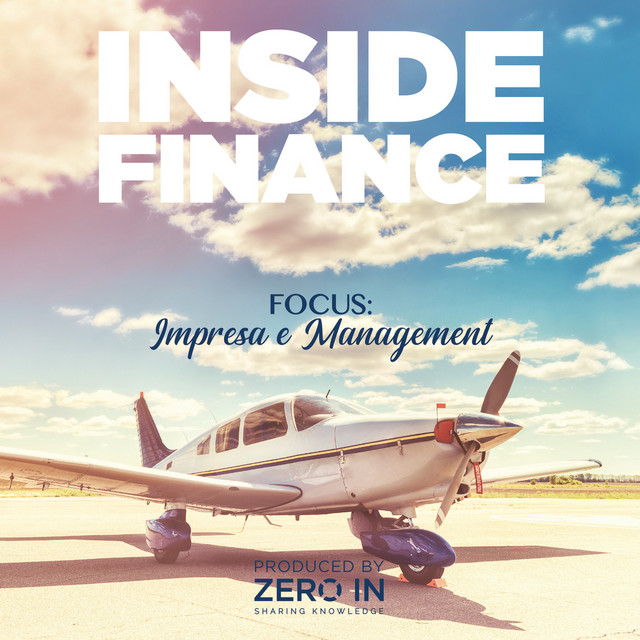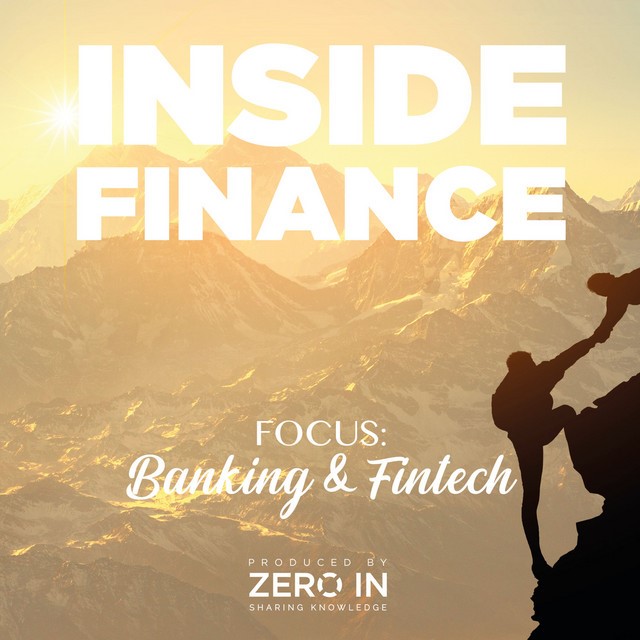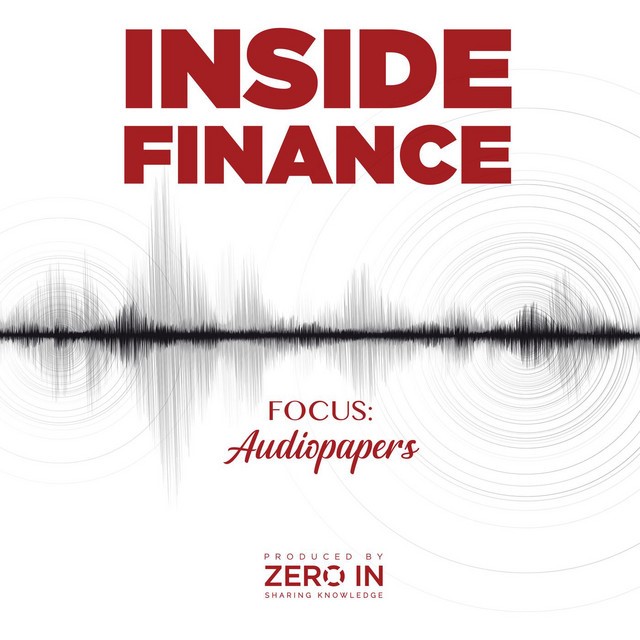https://open.spotify.com/episode/6vn49IMCJMGX5MVGm7848N L’ospite che avremo il piacere di intervistare oggi è l’imprenditore Guido Polito, Amministratore Delegato…
The role of EIF and EIB. Interview to Dario Scannapieco, Chairman, European Investment Fund & VP, European Investment Bank
The guest of this new episode is Dario Scannapieco, an Italian economist, Chairman of the Board of Directors of the EIF – European Investment Fund and Vice-President at the EIB – European Investment Bank, interviewed by Fernando Napolitano, Founder of Newest in New York.
The issues addressed will be the role of the EIF and the EIB, the main difference between the two institutions, the challenges they will face together within the European Union and, last but not least, the role of Italy as a country of opportunity for both Italian young entrepreneurs and foreign investors.
During the interview, Mr. Scannapieco will illustrate how the two bodies operate, emphasising their work of the last 10 years. He will focus his attention on the importance of investments as tools to face the current global challenges such as climate change and the issue of migration, by investing in long-term projects.
Concrete figures, specific examples and references to his personal career will provide further information and will help us to better understand in the specific not only the functioning of the two bodies, but the role of foreign countries, such as the United States and China, in European and Italian public and private investments as well.
With encouraging words, Mr. Scannapieco will thoroughly reply to all questions and we will see, or better hear, how even some old stereotypes about Italy will be cleared, giving hope especially to young entrepreneurs.
Before concluding with the ritual thanks, he will reply to the last question: “Does the Italian dream still exist, or are we doomed to the brain drain?”
Check it out and enjoy the episode!
circa un anno fa #eib, #eif, #europe, #finance, #inside, #investments, #italy, #napolitano, #newset, #scannapieco, #us
Transcript Powered by Whisper
00:39
Good morning. I’m Vincenzo Morzetti, the founder of Inside Finance, and I’m happy to welcome you to the English version of our podcast focusing on Italian business for US markets. This specific series is done in a partnership with Newest Corporation in New York and its founder Fernando Napolitano, former CEO of the strategic management consulting company Booz Allen Hamilton Italy. We will provide US investors with news, information, and data by Italian thought leaders, as well as the perspective of US investors.
01:08
who have successfully invested in Italy. Today, Fernando will interview Dario Scannapieco. Dario is an Italian economist, graduated at Lewis in Rome and with an Harvard MBA. In 1997, he started working for the Italian Treasury Ministry, becoming the Finance and Privatization General Manager in 2002. In 2007, he became Vice President of the European Investment Bank, the largest multinational lender in the world, with 600 billion euros in assets.
01:36
in 2012 he became chairman of the European investment fund. So welcome to Dario Scannapieco interviewed by Fernando Napolitano.
01:47
Today I am with Dario Scannapieco, chairman of European Investment Fund and vice president of the European Investment Bank. To start with, could you beautifully illustrate what the European Investment Fund does and the difference vis-a-vis the European Investment Bank?
02:05
Well, first of all, thank you Ferdinando for this interview. There are two different bodies within the same group. The EIB typically invests in bigger projects, senior debt to quasi-equity. The EIF is the equity arm of the group. It invests in private equity, venture capital funds. At present, we have around 18 billion euro invested in almost 1,000 funds operating within the European Union.
02:33
And also it’s very active on the guarantee sides, where we take risks on portfolio of SMEs generated by financial intermediaries. So they are complementary, is the approach towards risk, which is slightly different.
02:48
Now, the EIF, you focus on small to medium enterprise, which is arguably the backbone of the European and also of the Italian economy. This cluster emerged stronger after the crisis. As a matter of fact, exports are up. Now, this should be the ideal place for merger and acquisition, private equity. Is it happening from your perspective? And if it’s not, why?
03:18
Yeah, actually during the crisis we had a typical, you know, Schumpeterian event. Many companies have disappeared. The strongest one have remained. But what we see also, what we witness in our daily business is that there is also a new generation of young entrepreneurs which are approaching different markets with a very positive attitude. Now, those are extremely interesting target, both for the EIB directly through its venture debt products, but also for
03:47
many venture capitalists and when they grow up for private equity. What we are seeing, however, is that the market in Europe is still quite underdeveloped compared to the United States. The venture capital market is between one third and one quarter of the one in the United States. Therefore, and in the venture capital market in Europe, the EIF is the key player. Actually, we invest in essentially one out of three venture capital funds which are created in Europe.
04:13
So we see there a big opportunity and market gap that needs to be filled and therefore we believe it is something that we need to do for policy business, for policy reasons, but we also believe that this is very important and very interesting also for commercial reasons. We have extremely interesting companies starting from Spotify to others which may become stars globally.
04:38
Now, we have been talking to about 50 leaders so far, including Americans that have invested successfully in Europe and in Italy. It is clear that we as Europe are kind of squeezed between United States and China in terms of size of the company. And there is a general consensus, this is primarily due to the fact that we don’t have a single market for services, starting from financial services. Now, do you think that the new European leadership?
05:07
has this clear in its mind and will fast move in that direction.
05:15
I’m sure that it has cleared in his mind. I’m not sure that it will move fast, but simply because Europe has not been institutionally built to move fast, but it is moving in the right direction. If I look back at the last 10 years, and during the crisis, it has been done a lot to strengthen and to reinforce the institutional architecture of Europe. And everything has been done, I would say, in the right direction. The creation of the ESM, of many other institutions, but also other processes.
05:45
to bring together European Union countries. Now still a lot needs to be done, again, to complete the single market, as you are saying. But on the financial aspects, a body like the European Investment Bank or the European Investment Fund may do a lot to support the creation. What is very important is to have common challenges. This will push European member states to be together. At present, the biggest challenge is the climate challenge. If you see every single head of government and head of state,
06:14
has said that we need to do more to be together in order to win this challenge. And I think we as Europeans should be far more proud of what we are doing. I mean, no other country or bloc in Europe has the same ambitious target that we have. Another big challenge that we could bring Europe together is the fight or the, let’s say, dealing with migration challenge. This is another event that may bring European countries more together.
06:42
What do you expect the European leadership to do to reestablish trust and an optimistic view is that the European economic growth.
06:57
There has been a policy and political debate in the last 10 years in Europe. The first was a debate led by the need of countries to keep their public finances in order and this is still very important. So it was the so-called debate on austerity. In the last five years the wind has changed. Now the debate is more on competitiveness. What can we do to not lose ground compared to other bloc or even to become leaders?
07:24
The example of climate is very important. We have extremely interesting companies operating on the climate side, developing innovative tools to reduce emissions or to exploit in a better way sources of energies. So essentially, if we keep the focus on investment, if we reduce the bureaucratic obstacles to promote investment, this could help. And the European Union has sent clear messages in this respect.
07:51
They’ve launched the new InvestEU program, which will be the successor of the Juncker Plan, which is a plan that the EIB has successfully implemented. Essentially 500 billion of additional investment to support European Union competitiveness. Now this will be maintained and this will be reinforced through InvestEU, where the EIB will partner with national promotional banks, with financial intermediaries, to make Europe more competitive. So the clear messages that the commission is giving, now that Europe is giving…
08:19
We want to become more competitive, we want to become clean, and we want to take again a role, a leader role that we had in the past.
08:28
Now, you also, I’m sure you look at the United States and investors, right? Should a U.S. investor consider either the European Investment Fund or the European Investment Bank as a source and as a partner?
08:47
This is already happening, I would say. First of all, when we finance large infrastructure, typically we see big infrastructure fund coming from the United States, also in this very country. Or when we support private equity or private debt, there are many, many investors coming from the United States which feel attracted from what is happening here.
09:07
Now we see them probably more active on the private equity, so on the lower mid-market size and on the private debt size, where we have important players coming from the United States and operating in Europe. Still, in my view, the extra effort that we need to do is to attract them on the venture capital part, on the technology transfer part. We have excellencies in the field of research, of innovation, universities which produce a lot of very interesting research. We have developed in this very country a program
09:37
jointly with the Casa Deposita in Presidio, which is called Itatec, to support the technology transfer from university towards the creation of companies. And this is a segment where probably, clearly they need to invest a little bit to understand the business environment, but where probably something more can be done from the United States investors.
09:58
Could you briefly illustrate European investment bank by the numbers?
10:07
Yeah, I mean, we are by far the largest multinational lender in the world. We have around 600 billion euro in assets. Every year we will end around 70 to 80 billion, in the past even more. 90% within the European Union, 10 to 15% in the past, probably even increasing outside the European Union, because this is also the financial arm for foreign policy of the European Union. So it’s a huge institution.
10:36
and 500 people, so still very efficient. Every year we close with around 2.5 billion in profit, even though we are not a profit-oriented company. The business model is very simple. We are AAA rated institution. We fund ourselves on the market, we transfer the benefit to our funding in support of a project we have a real impact in the economy. But what makes the European Investment Bank different from all the others is the number of engineers and economists that we have. One out of seven.
11:05
employee of the bank is an engineer or an economist because we lend long term for even 50 years, therefore we do a very thorough analysis of the projects that we finance. So this loan will be in our books for 40 years, so we need to understand well what has been financed and therefore the technical aspect, the technical analysis that is performed by our engineers actually is what drives the decision of other investors to come alongside us and support some financial projects. And we are leveraging also on this aspect to provide advisory services.
11:35
to many countries and to many promoters. Because frequently what is lacking, and especially in Europe and in Italy, sorry, is not the lack of financial resources, but the lack of skills and how to make a project bankable.
11:51
Speaking of which, we always make the headline as Italy about the brain drain. So what best resources that typically migrate to the United States, either for college or MBA or PhDs, if they don’t come back. So you are an example of somebody when Harvard Business School, in fact, came back and did a wonderful career in the public sector. So what would be your advice? And why should a young MBA?
12:21
considering coming back to Italy.
12:25
The main driver of my decision and I think one of the main motivators for people may be to create an impact. Italy, especially the public administration, has suffered a lot after the crisis. So skilled people, talented people with a lot of determination may create an impact. And the amount of things to be done is really a lot. So…
12:46
For me it was fantastic working with Mario Draghi in the Treasury. I remember spending every night until 3 o’clock in the morning in the Treasury because there were so many things that had to be done to change Italy, to make it a better place also business-wide. So this was a big challenge and I had a lot of fun, but also there was a lot of work to be done.
13:08
Our last question is of course, most concerned Italy. Italy has a reputation of not being a friendly place to do business. Do you see this changing and is this reputation deserved?
13:24
Up to a certain level, all the efforts are done to create an easier environment. Clearly there are still some structural elements that you cannot change in one night. If you think about the fiscal pressure, it cannot disappear in one day. But from the public administration side, there is a lot of consciousness. On the other side, I would like to avoid all kinds of stereotypes on Italy. What I see frequently are young men, Italians, which are creating their own startup.
13:52
I can think of one in the Puglia region in the south of Italy, again, also to dismantle another stereotype, which is a very high tech company producing probably the best 3D printers in the world. A young entrepreneur of less than 30 years, similar cases we have in Sardinia. So technology is creating a wave of new young entrepreneurs, which may dismantle a lot of stereotypes.
14:22
of Italy from the regions that you tend to think as the less developed and the less innovative ones. There is a new wave of entrepreneurs and this is a great opportunity. The real-life question. Do you still have the reason to believe in the Italian Dream?
14:40
There is an Italian dream and every time I speak with these entrepreneurs, they like the place in which they live and they want to make it even a better place.
14:51
That is Scannapieco, Chairman of European Investment, Founding Vice President of European Investment Bank. Thank you. Thank you, Ferdinando, for this interview. Thank you for listening to this episode.
15:01
Please send an email to feedback at insidefinance.it with any suggestions, collaboration interests, or sponsorship proposals you may have. Otherwise, feel free to comment on the Inside Finance LinkedIn page and let us know your point of view and thoughts on the topics covered in this podcast.
15:33
If you enjoyed this episode, please follow us on the major podcast platforms and join us next time.



